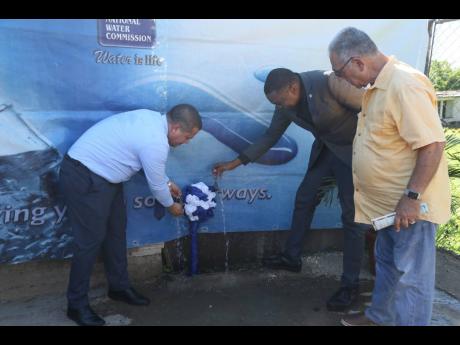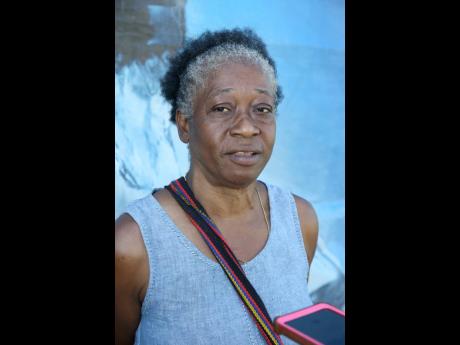Water project in Wood Hall brings relief
The commissioning of the Red Mud and Post/Pond Road pipeline replacement project in Wood Hall, Clarendon, has reignited the hopes of residents, many of whom did not have running water for decades.
The commissioning was done by Senator Matthew Samuda, the de facto minister of water.
The $7.4-million Red Mud project was completed in July 2021, while the Post/Pond Road pipeline was completed in April this year at a cost of $3.7 million.
Approximately 0.64km of the existing four-inch AC main was replaced with four-inch PVC pipelines. Where the six-inch pipeline intersects at Red Mud Road and Pond Road, approximately 0.3km of that was replaced.
For Wood Hall resident Juna Wynter, who has called the community home for more than 70 years, the newly replaced pipeline will see her saving a little money each month. She will no longer have to pay $2,000 to fill a drum with water.
Wynter, who rears chickens, told The Gleaner that she purchases water weekly.
“As yuh wash and give the two chicken dem some, it done,” she said.
A common cry among the residents was the intermittent supply of water from the old network, which saw them leaving their homes in wee hours to get drops of the commodity.
“When we did have the first pipeline, a standpipe was there so. When the water come, you have to wake up before day. When yuh hear two drum a knock, you know say water deh a road,” said Wynter.
Similar sentiments were echoed by residents like 63-year-old Fitzroy Angel.
“When it come to water challenge, we have it rough. When the old pipeline was up, it’s like we were Ghost Busters, because water come at midnight. So we have to lose we night’s rest fi get little water, because, by daybreak, it gone,” said Angel, a farmer who spends more than $7,000 weekly on water,
Describing the commodity as the “basis of all human and economic activities”, Samuda said that the Government plans to invest heavily in water and sewerage infrastructure in Clarendon North Central.
“A project of this nature opens up economic possibilities, but, for me, it brings human dignity - the quality of life that our people deserve.”
In his address, Samuda said that the National Water Commission (NWC) had been plagued by bad financial decisions made threee decades ago.
Samuda said that he, Finance Minister Dr Nigel Clarke, and NWC President Mark Barnett will be having dialogue with the prime minister to explore refinancing legacy issues of the NWC.
Samuda also cited theft as one of the grave challenges affecting water supply.
Garwaine Johnson, NWC’s regional manager for St Catherine and Clarendon, said that the team had been working assiduously to reach its target of giving 85 per cent of homes access to potable water – part of its Vision 2030 mandate.
“The commissioning of these projects unoubtedly brings us closer to that milestone,” said Johnson.
Councillor Hershell Brown of the Chapelton division, where Wood Hall is located, described the commissioning as the beginning of the end of their water woes.
“Water is the main issue for residents in the Chapelton division. A large number of residents actually get water from the two rivers – the Rio Minho and the Thomas River. This first step will alleviate this issue in a significant way for a number of persons,” Brown told The Gleaner.


